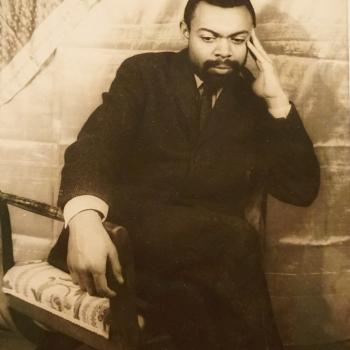It took about 150 years for European Catholic immigrants and their descendants to almost fully integrate into the larger U.S. culture. Why shouldn’t we give this new generation of Catholic immigrants and their descendants the time they need to do likewise? I constantly repeat in my presentations, “the Church exists in this country to evangelize, not to Americanize.”
On the other hand, there is already a massive process of integration into the U.S. culture taking place among many present-day Catholic immigrants, and more evidently among their children and grandchildren. The question for us and our ecclesial structures is how are we integrating these new voices in our communities, organizations, and leadership structures?
We must not wait too long to do this. There is evidence that millions of young Hispanics are choosing not to self-identify as Catholics any longer. They are drifting away. This is a major loss.
Here, the writer (or interviewee) is being polite, deferential, but what he’s talking about is complacency. Not so long ago, Catholics in America couldn’t afford complacency, either because poor or outcast. As we’ve become more American, we’ve become more comfortable (has anyone out there been to a suburban church lately?), and thereby less interested in struggle. Can we really say this has been good for the life of faith?
This is, of course, a political question, but I have no desire to speak in terms of concrete policy at the moment. The point, rather, is to ask how we can accept such complacency in our lives—nice homes, good jobs, filling (well, it is Lent) food. There’s nothing, of course, wrong with comfort in moderation, but would you rather be Oscar Wilde or St. Catherine of Siena, a deathbed convert moseying along, or someone who embraces the radical call to struggle that is the Gospel, spiritually, physically, mentally, emotionally—all in love?
When our lives (mine included), when our identities, become tied to giving a little here, playing the guitar (to each his own, I suppose) at Mass a little there, and shaking the good padre’s hand on the way out of church, are we really embracing the struggle of salvation, a process both spiritual and physical, taking place in the soul, and yet made known in material actions?
I write not so much to exhort you, but out of disgust with myself and my own willingness to slip from grace, to put myself first and hide the struggle of life behind equal parts self-aggrandizement and self-loathing.
The question is not salvation per se (for who can know?), but of choice. God’s justice and mercy are abundant, but will we sit back and shed a tear after a life with food in the belly, or will we embrace struggle, embrace the brokenness, the pain, the suffering—the beautiful substance of life?













